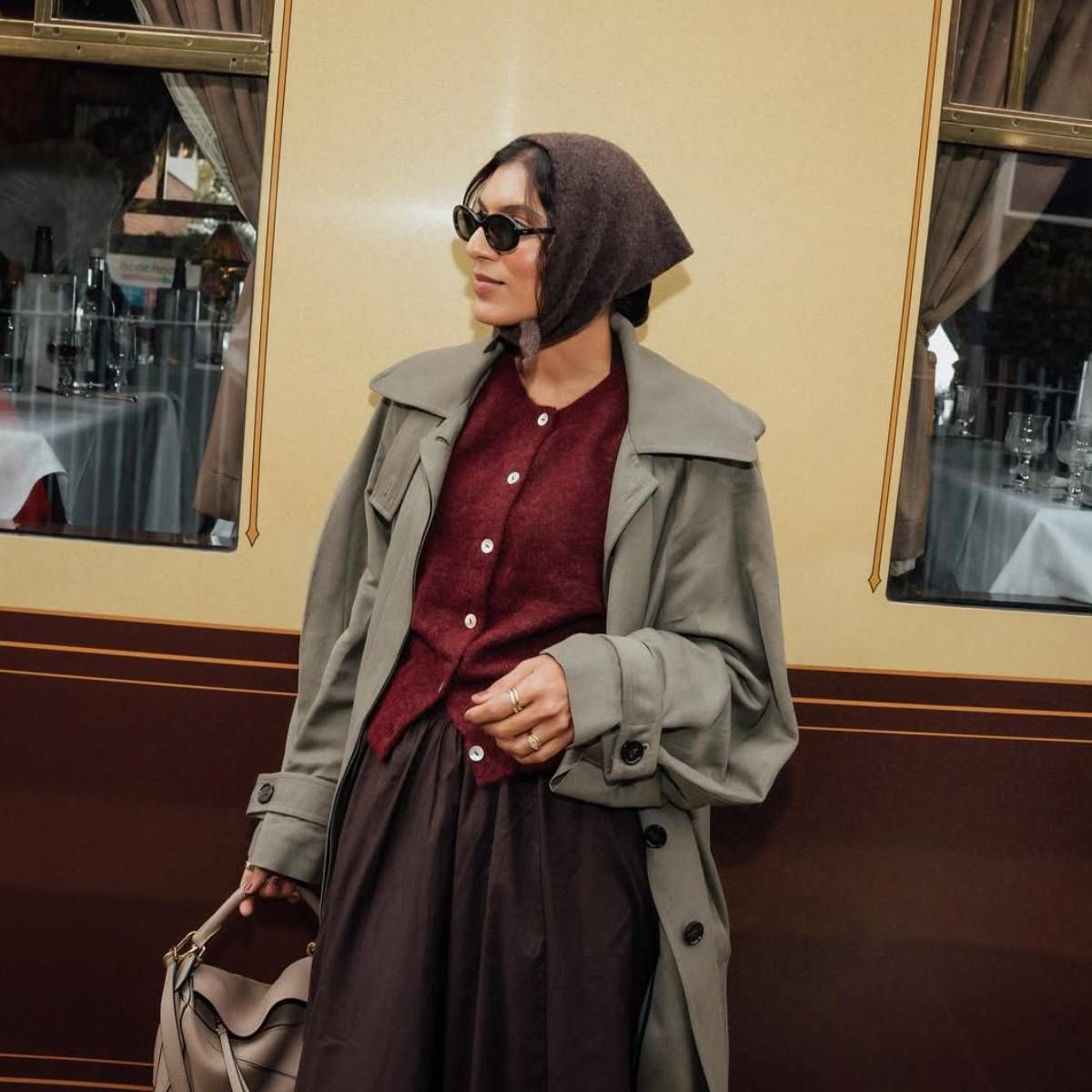Fashion
Fair Wear: Fashion brands, suppliers must up game for CSDDD

During a catch-up over Zoom, Kohnstamm shares his multi-stakeholder organisation Fair Wear was “banging the drum” for the Corporate Sustainability Due Diligence Directive (CSDDD)’s approval, but it’s only now its final approval has been granted that the real challenge begins.
He points out Fair Wear fought to make the legislation both impactful and practical, and overall he’s happy with what’s been achieved. After, a slight pause he adds: “There are some things that maybe could have been better, but in general, we’re very positive.”
Kohnstamm sees Fair Wear’s role as being part of a support system for global fashion brands and provide support to brands in “a practical way” that ensures due diligence regulation doesn’t just “drain resources on reporting, but gets things done for workers and the environment”.
Fair Wear recently announced its partnership with global non-profit alliance Cascale, formerly known as the Sustainable Apparel Coalition, to expand and scale the systemic change needed to address human and labour rights challenges in the apparel sector.
Kohnstamm tells Just Style this collaboration will play an important role in terms of helping brands prepare for CSDDD too.
Fair Wear has worked on due diligence from its inception 25 years ago and long before the term was being used by either the United Nations Development Programme or the Organisation for Economic Co-operation and Development’s guidelines.
Access the most comprehensive Company Profiles
on the market, powered by GlobalData. Save hours of research. Gain competitive edge.

Company Profile – free
sample
Your download email will arrive shortly
We are confident about the
unique
quality of our Company Profiles. However, we want you to make the most
beneficial
decision for your business, so we offer a free sample that you can download by
submitting the below form
By GlobalData
Kohnstamm is adamant that it will be Fair Wear and Cascale’s joint responsibility to make sure the market moves in the same direction and does so in a responsible way: “I think brands want to do that with their partners in production countries, but often don’t really know how to do it.”
How will Fair Wear help fashion brands prepare for CSDDD
Fair Wear has been working with partners and stakeholders to define what good looks like in practice for apparel brands and suppliers. Kohnstamm notes that regulators won’t necessarily understand what does and doesn’t work for the apparel sector specifically.
For this reason, Fair Wear facilitates several partnerships to provide sector-specific reference points that regulators can use to examine specific brands and the sector as a whole with regards to CSDDD. Kohnstamm shares a major result of this has been the Common Framework for Responsible Purchasing Practices, which is now generally adopted.
He shares similar work needs to be done for what CSDDD calls ‘meaningful stakeholder engagement’.
Of course, Kohnstamm understands you can’t have thousands of brands holding thousands of roundtables with trade unions in any given apparel sourcing region. Legislation, he says, makes brands individually responsible for crucial obligations that in practice can only be carried out collectively.
So, Fair Wear is working with partners and stakeholders on a sensible solution and is asking the key questions such as who can be the honest broker between parties and who should be on the ground having the crucial conversations?
And there are more important questions that still need to be answered, such as: How can we strengthen the position of trade unions to play a valued role in due diligence, to make the position of workers better in sustainable supply chains? And how can we make sure global governments understand that if they want to benefit from this legislation they have to improve protections for workers and make it easier for brands to source from them because they can rely on good laws?
Fair Wear is a member organisation that works with fashion brands so Kohnstamm can say with a large degree of confidence that he doesn’t know of any brand that goes to a country because it has bad laws.
But, he continues: “The fact of the matter is that often the laws are not applied very well. And then the brand has a much higher responsibility to care for its workers and prevent problems.
“If the laws were applied and were more robust then obviously it would be much easier for a brand to say that’s a great country to source from. In the context of due diligence, improving working conditions is good for business. Perhaps that’s something for governments to consider.”
Kohnstamm is also calling on the European Union to help aid the introduction of the newly introduced regulation with investments to strengthen supply chain partners, because he states: “Ultimately, that will help European brands to do better as well.”
Fair Wear’s advice for fashion brands and suppliers preparing for CSDDD
The key nexus where “magic” needs to happen is between fashion manufacturers and fashion brands. The first step in terms of preparing for CSDDD, according to Kohnstamm is to become real equitable partners.
Everyone knows that money passes from the buyer to the supplier, but, he asserts money is not the only thing of importance in the partnership.
“Reliable, good products and sustainable production are all part of what changes hands. It’s not only the money. Money talks so they say, but that’s a very limited and I would say very damaging approach to a buyer supplier relationship.”
Kohnstamm is quick to add you cannot change a garment worker’s situation or the state of the environment or responsibly source any product without an equitable relationship between buyers and suppliers.
Plus, buyers are supposed to be responsible for their whole supply chain so you need to be able to trust your direct suppliers will be carrying out similar due diligence with their partners.
Equitable partnerships make it much easier to assess and mitigate risks as it is something you can do together with an understanding that you are impacting real people’s lives.
It’s equally important for manufacturers to understand that consumers need good stuff produced responsibly at a reasonable price. It’s all about being jointly responsible for both ends of the supply chain and seeing it as a joint interest, he says.
Brands and manufacturers having a united front and liaising with governments and supplier associations together will also be essential. Strong partnerships will bring more business and crucially better business to all concerned.
How Fair Wear hopes to reach more of the industry
Focusing first on helping member brands prepare for CSDDD, Kohnstamm is committed to reaching more of the industry to ensure it moves in the right direction collectively.
He says it’s in the interest of garment workers but it’s also in the interest of Fair Wear’s member brands. This is because fashion brands often sit in factories where they want to make changes, but the other brands sourcing from the same factory might be less interested in doing so: “The more parties that come to the table, the better it is. We see that, for example with the Bangladesh and Pakistan Accords for improving workplace safety.”
Expanding Fair Wear’s membership is part of this, but Kohnstamm admits his organisation is quite selective in terms of who it brings on board. Non-member brands however can access Fair Wear’s vast due diligence knowledge and tools through the newly launched “HRDD Academy”.
Fair Wear’s ultimate vision for the apparel sector
Kohnstamm’s ultimate vision for the apparel sector is to have all fashion brands working on the same practical but also impactful standards. This includes working with the same data, using the same type of tools and reporting as well as the same common assessment framework.
He clarifies: “I guess what I’m trying to say is we know what good due diligence looks like. We know what questions to ask and what you need to do to provide the answers. Ideally, we would also collaborate in future not only on educating brands on how to do that, but also facilitating them to actually doing it – as we already do for our member brands.
“An environment where all brands, not just our member brands can follow the same steps of due diligence, do it well, and do it only once for all forms of reporting. If we could do it in a way that the whole industry or a large part of it works in the same way, with the same standards, then I think we can really make a difference together.”










